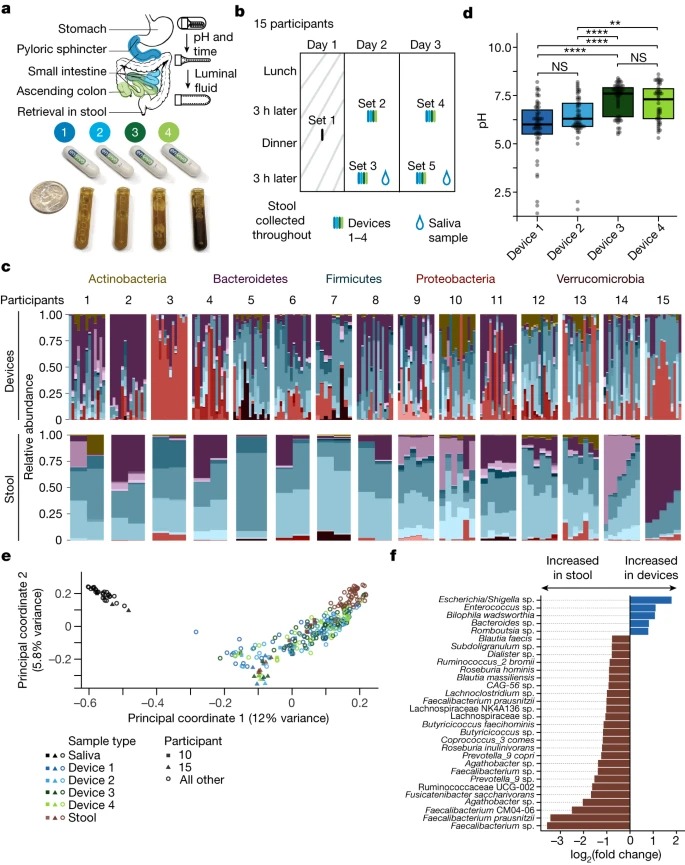physiological conditions에서 human intestinal environment profiling.

Abstract
인간 microbiome, proteome and metabolome의 spatiotemporal structure는 intestinal physiology를 반영하고 결정하며 질병에 영향을 미칠 수 있습니다. 그러나 대변 샘플에 의존하고 공복 또는 진정 상태의 내시경을 사용하여 gut의 일부 영역에만 접근할 수 있기 때문에 gut내 microorganisms, their environment and their biochemical activity에 대해 알려진 바가 거의 없습니다. 이러한 deficiencies를 해결하기 위해 우리는 정상적인 소화 과정에서 장의 여러 부위에서 샘플을 수집할 수 있는 섭취 가능한 장치를 개발했습니다. 이 장치를 사용하여 15명의 건강한 사람으로부터 240개의 intestinal samples을 수집한 후 multi-omics analyses를 통해 intestines versus stool의 bacteria, phages, host proteins and metabolites 간에 상당한 차이가 있음을 확인했습니다. 특정 microbial taxa는 differentially enriched되어있으며, 대변보다 장에서 prophage inducion이 더 많이 나타났습니다. host proteome과 bile acid profiles은 장에 따라 다양했으며 대변의 프로필과 매우 뚜렷하게 구분되었습니다. bile acid 농도의 gradients와 microbial abundance 간의 상관관계를 통해 bile acid pool을 변화시키는 미생물 종을 예측했습니다. 또한 microbially conjugated bile acid concentrations는 대변에서는 뚜렷하지 않은 amino acid-dependent 경향을 보였습니다. 전반적으로, 생리적 조건에서 microorganisms, proteins and bile acids의 non-invasive, longitudinal profiling은 인간 생리와 질병에서 gut microbiome and metabolome의 역할을 밝히는 데 도움이 될 수 있습니다.
